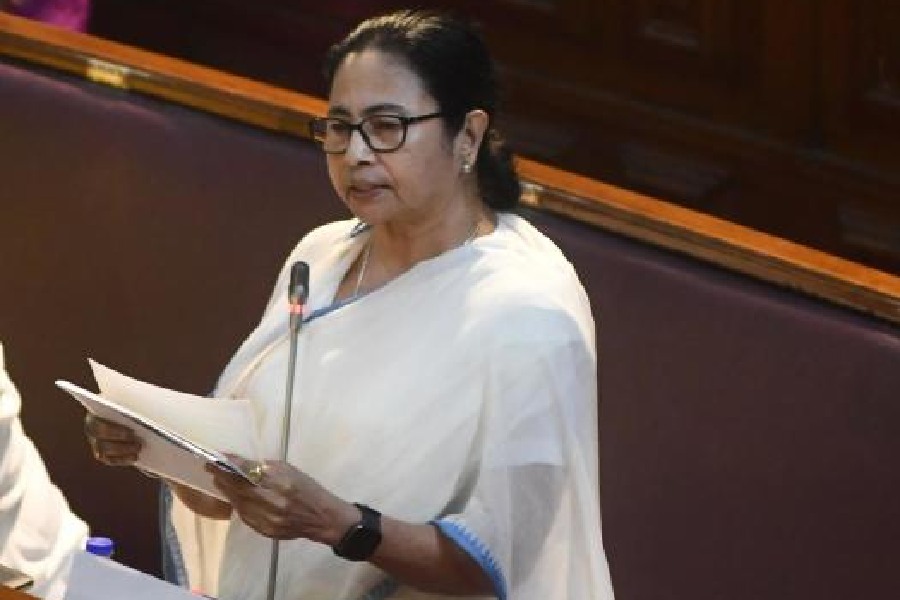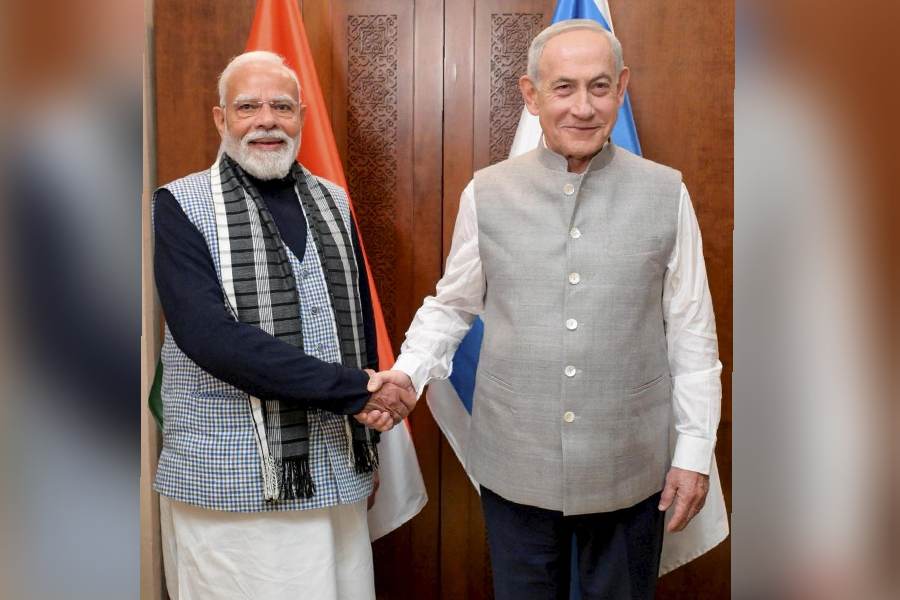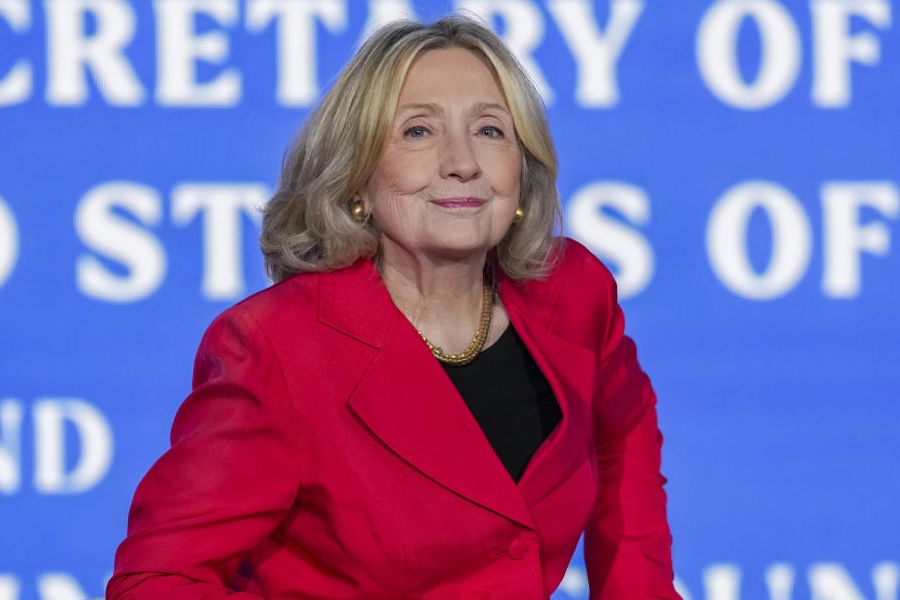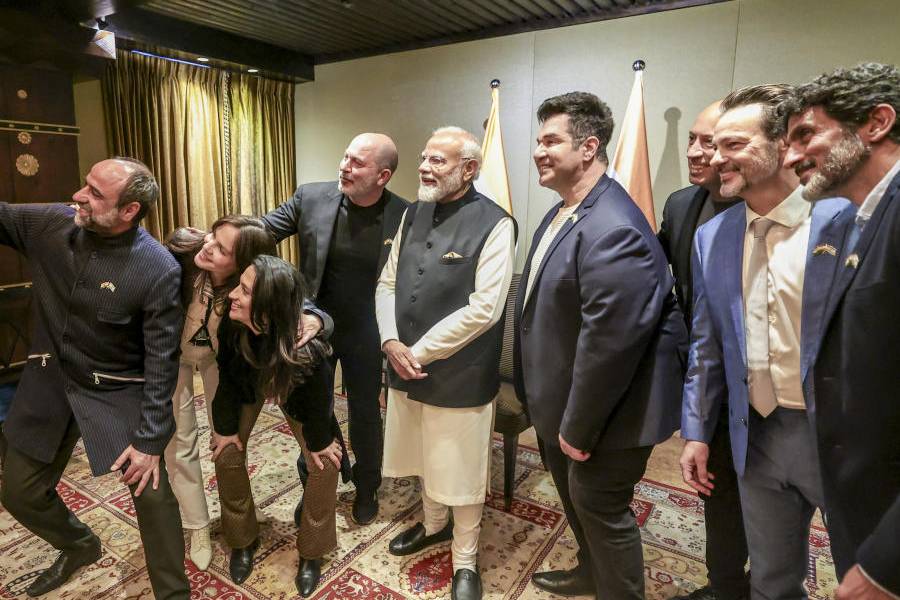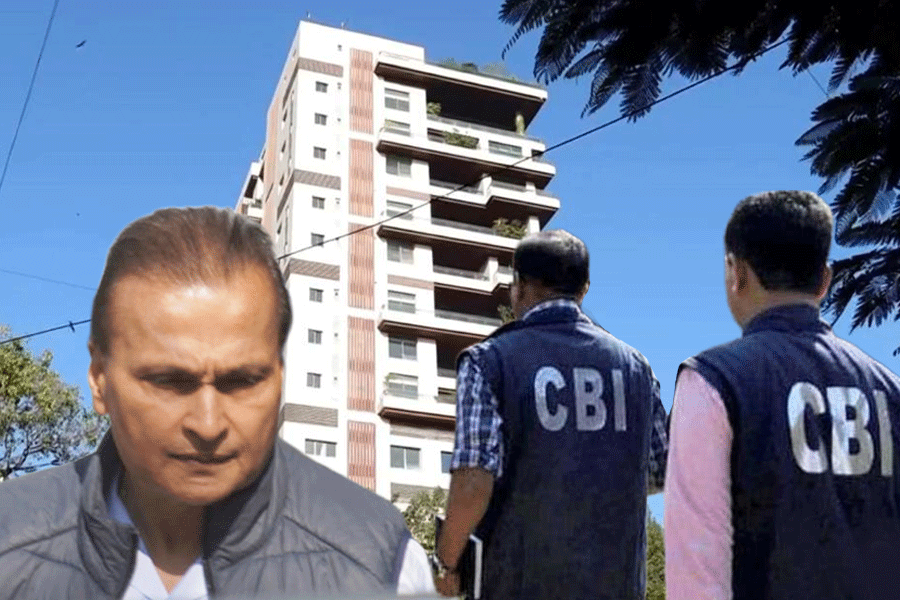The Assembly on Thursday passed a resolution declaring Poila Baisakh as Bangla Diwas (Bengal Day) and Banglar Mati Banglar Jol as the state anthem.
Speaking in the Assembly ahead of the passage of the resolution, chief minister Mamata Banerjee mounted an offensive on what she described as the divisive agenda of the BJP to reopen old wounds of communal strife and the Partition and jeered at the Opposition party for having played no constructive role in the freedom struggle.
The motion was passed by 167 votes from the treasury benches in its favour and 62 votes from BJP MLAs against it. In the 294-seat House (with two vacancies), the Trinamul Congress effectively has 222 members, while the BJP has 69. The ISF has one MLA who abstained from the voting.
Although the BJP kept insisting that it would keep the motion from being realised by convincing governor C.V. Ananda Bose (currently on a warpath with the state government), the chief minister later said governor’s consent was immaterial to this resolution.
“All we have to do is send (Bose) a copy (of the resolution), out of courtesy. This is not a Bill, it is a resolution. They (the BJP) don’t even know the law…. It was passed by two-third majority in the Assembly. The legislature is the biggest platform for the people,” said Mamata in her chamber.
In her 18-minute address during the discussion in the House, the chief minister pulled no punches in her attack on the saffron camp which insists that June 20, 1947, be observed as the state’s “foundation day”.
“You are showing us history. Those who did not even participate in the freedom struggle had no role whatsoever in it,” said Mamata, referring to the non-participation of hardliner right-wing outfits such as the RSS (the BJP’s ideological backbone) and the Hindu Mahasabha (the BJP’s ideological grandparent) in India’s Independence movement.
“They are talking about Independence and the struggle’s history. Saddening, shameful… those who assassinated (Mahatma) Gandhiji, the Father of the Nation, and were happy about it. They will say these things now, and teach us history?” she asked.
One of the fiercest critics of the saffron regime, Mamata often lashes out at the increasing propensity of the Sangh parivar to publicly hail Nathuram Godse — a member of the Hindu Mahasabha — as a hero for having murdered Gandhi, around occasions such as Independence Day.
“Maybe we don’t know history as well as you. Truly, we don’t know (the saffron version of history) because we are not in the habit of practising your brand of radicalism, of terror,” said Mamata, not long after the BJP MLAs made numerous communally stained remarks in their speeches with the obvious agenda of polarisation.
The Trinamul chairperson mocked the saffron ecosystem’s relentless attempts to rewrite the history of the Indian subcontinent to further its far-right Hindi-Hindu-Hindustan agenda.
On August 29, the chief minister had presided over a programme in which representatives of Bengal’s art, culture, business, academia, sports, religious bodies and a section of fringe political forces overwhelmingly endorsed Poila Baisakh as Bangla Diwas. The BJP, the CPM and the Congress stayed away from the meeting.
The trigger was a communication from the Union home ministry under Amit Shah, which conveyed the Centre’s decision to observe June 20 as Bengal’s “foundation day”, following which Raj Bhavan organised a programme that day.
Mamata had then lashed out at the Centre for not consulting the state before taking such a decision.
“We hereby lodge our unequivocal protest against the Centre’s unilateral, sudden, ahistorical and divisive decision,” said Mamata on Thursday.
“Actually, those with no connect whatsoever with the soil or the people of Bengal, of the deep roots of their soul… how will they speak of Bengal?” she asked.
According to historian Sugata Bose, a grandnephew of Netaji Subhas Chandra Bose and a grandson of Sarat Chandra Bose, June 20 was a “sad footnote” in history.
In an article for The Telegraph, Bose, whom the ruling dispensation had consulted on the subject, had written that on June 20, 1947, east Bengal legislators had voted by 106 votes to 35 against the Partition while the legislators of west Bengal voted by 58 votes to 21 in its favour.
Viceroy Lord Mountbatten’s plans had provided for the Partition to go ahead if any one side wanted it and the freedom fighters’ dream of a united Bengal was smashed, Bose had written.
“Bengal existed as a (kingdom or) province for ages. Through a very painful process of the Partition, on August 15, 1947, on their way out, the colonial British government divided Bengal and a partitioned state of West Bengal was created,” said Mamata.
“In Bengal’s long history, perhaps the Partition was then a historical inevitability, which is the truth. But it is also the truth that it destroyed the lives of lakhs of Bengalis… in one moment, they were uprooted. Thousands lost their lives. The economy had crumbled. Infrastructure was devastated,” she added.
“So if such a day must be observed, a day that recalls the trauma of the Partition, the horrors of communal strife cannot be selected.”
After the passage of the resolution, the members of the treasury benches and ISF MLA Nawsad Siddique sang the newly adopted state anthem and the national anthem. The BJP members had walked out, with bellicose chants of “Jai Sri Ram”, right after losing the vote.
The state anthem, Banglar Mati Banglar Jol, is a Bengali patriotic song written by Nobel laureate polymath Rabindranath Tagore in 1905, protesting the Partition of Bengal.
Poila Baisakh, the Bengali New Year’s Day, falls in the middle of April.

